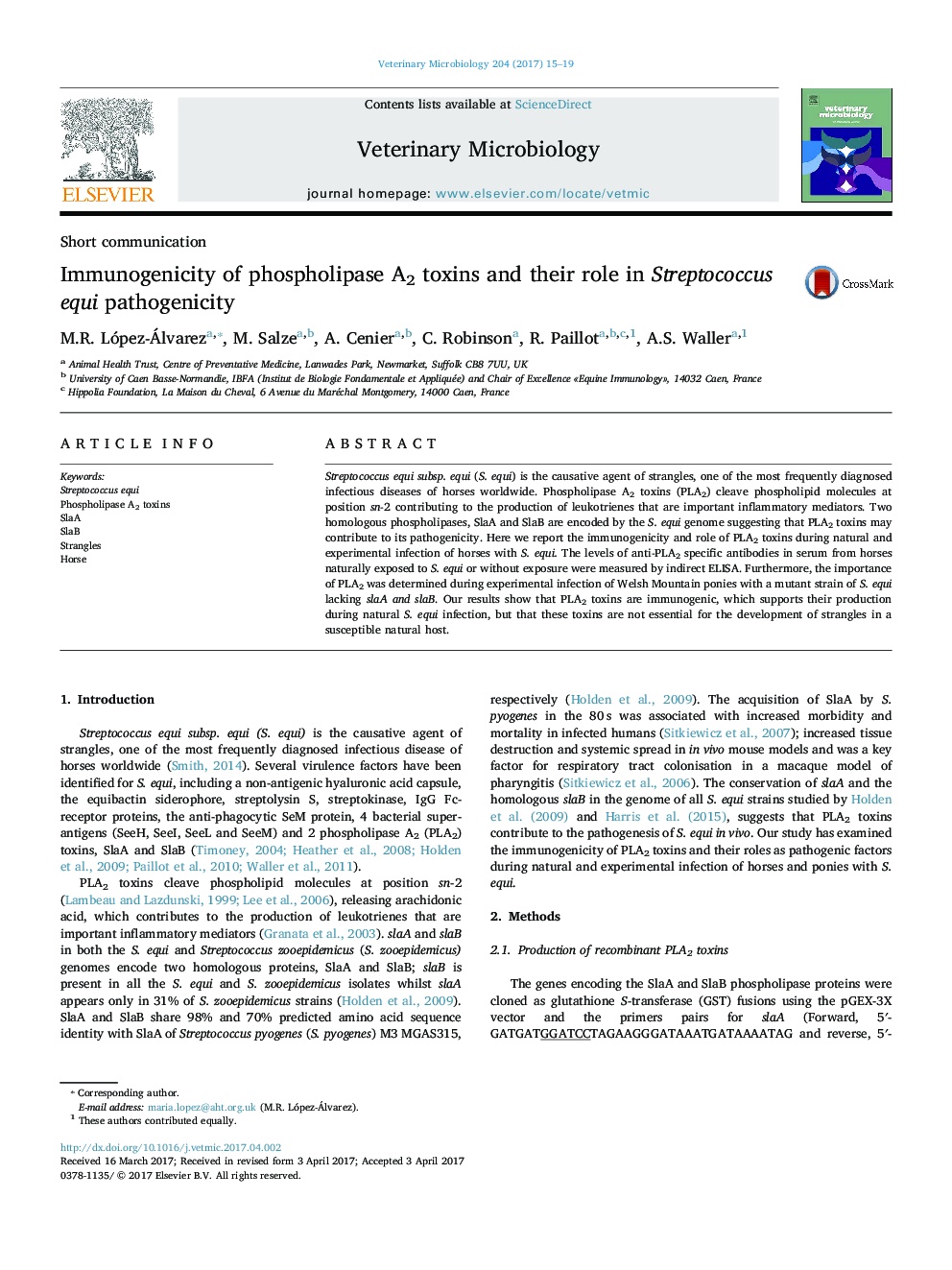| Article ID | Journal | Published Year | Pages | File Type |
|---|---|---|---|---|
| 5545270 | Veterinary Microbiology | 2017 | 5 Pages |
â¢Phospholipases A2 (PLA2) toxins are produced by S. equi during in vivo infection.â¢Anti-PLA2 antibody levels are significantly higher after exposure to S. equi.â¢The clinical signs of strangles are not significantly affected by the absence of PLA2 toxins.â¢PLA2 toxins are not essential for the development of strangles.
Streptococcus equi subsp. equi (S. equi) is the causative agent of strangles, one of the most frequently diagnosed infectious diseases of horses worldwide. Phospholipase A2 toxins (PLA2) cleave phospholipid molecules at position sn-2 contributing to the production of leukotrienes that are important inflammatory mediators. Two homologous phospholipases, SlaA and SlaB are encoded by the S. equi genome suggesting that PLA2 toxins may contribute to its pathogenicity. Here we report the immunogenicity and role of PLA2 toxins during natural and experimental infection of horses with S. equi. The levels of anti-PLA2 specific antibodies in serum from horses naturally exposed to S. equi or without exposure were measured by indirect ELISA. Furthermore, the importance of PLA2 was determined during experimental infection of Welsh Mountain ponies with a mutant strain of S. equi lacking slaA and slaB. Our results show that PLA2 toxins are immunogenic, which supports their production during natural S. equi infection, but that these toxins are not essential for the development of strangles in a susceptible natural host.
